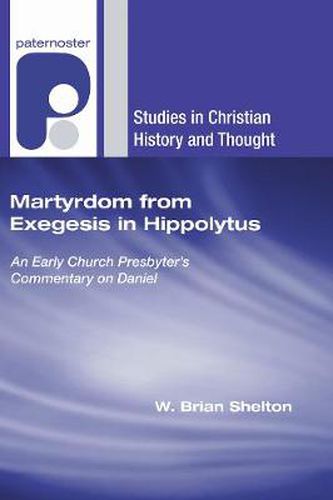Readings Newsletter
Become a Readings Member to make your shopping experience even easier.
Sign in or sign up for free!
You’re not far away from qualifying for FREE standard shipping within Australia
You’ve qualified for FREE standard shipping within Australia
The cart is loading…






In the third century CE, Emperor Septimius Severus unleashed a shocking and severe persecution against the Christian church. Witnessing the fear and confusion in his congregations, the presbyter Hippolytus crafted his Commentary on Daniel to encourage Christians confronted with the reality of martyrdom and persecution. In a work which comes to us as the earliest orthodox Christian commentary on scripture, Hippolytus interprets the text through allegory, typology, theodicy, paraenesis, and reflection to create a motif of martyrdom. By doing so, Hippolytus guides Christians iin their communities as they stand heroically before the tribunal of Caesar, like the Danielic characters stood before authorities in Babylon. His purpose in the commentary is clearly pastoral, arising from his role as presbyter: to exhort his Christian congregations to prepare to be martyred for Christ amidst Roman persecution.
$9.00 standard shipping within Australia
FREE standard shipping within Australia for orders over $100.00
Express & International shipping calculated at checkout
In the third century CE, Emperor Septimius Severus unleashed a shocking and severe persecution against the Christian church. Witnessing the fear and confusion in his congregations, the presbyter Hippolytus crafted his Commentary on Daniel to encourage Christians confronted with the reality of martyrdom and persecution. In a work which comes to us as the earliest orthodox Christian commentary on scripture, Hippolytus interprets the text through allegory, typology, theodicy, paraenesis, and reflection to create a motif of martyrdom. By doing so, Hippolytus guides Christians iin their communities as they stand heroically before the tribunal of Caesar, like the Danielic characters stood before authorities in Babylon. His purpose in the commentary is clearly pastoral, arising from his role as presbyter: to exhort his Christian congregations to prepare to be martyred for Christ amidst Roman persecution.